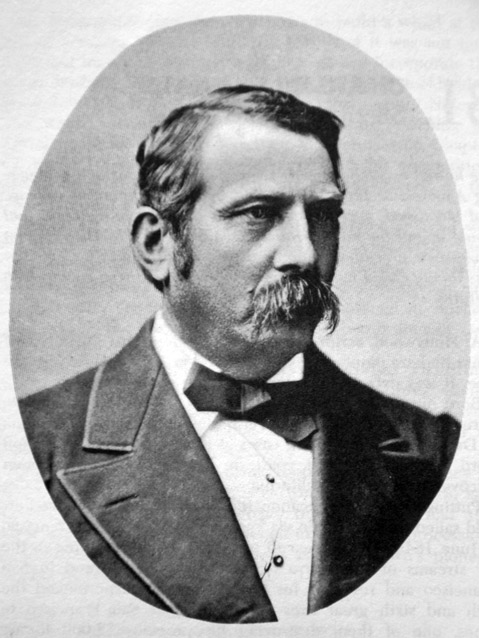A Devil on Horseback
Lawless Years
JACK POWERS: Out of Santa Barbara’s dusty history, to the sound of thundering hoofbeats, comes not the valiant Lone Ranger but a deadly Irish gambler and highwayman, Jack Powers.
CNN was not on hand to record his adventures. So what follows is a rough outline of stories about how Powers and his gang waged a reign of terror in Santa Barbara County in the 1840s and 1850s, defying what law enforcement there was and leaving a trail of corpses. His gang would waylay, rob, and kill men returning from the Sierra gold fields with cash earned selling cattle to the miners.

Ironically, Powers arrived here from New York’s infamous Hell’s Kitchen with soldiers whose duty it was to help pacify the new state-to-be California, where hostilities had erupted when it was taken over from Mexico in 1846. With his infectious Irish charm and bold leadership skills, Powers could have become a rich rancher or powerful politician in the new state. But the wild colonial boy instead had the heart of a violent robber.
His family arrived in New York from Ireland in 1836, and Powers grew up in the slums of the Bowery and Hell’s Kitchen. He joined his street pals in signing up for adventure in the West with Col. Jonathan D. Stevenson’s New York Volunteer Regiment.
When they arrived by sea from around the Horn, the Mexican-American War was over for Santa Barbara. Looking for a fast buck, Powers headed to rip-roaring San Francisco along with some of his New York rowdies, making a killing at the gambling tables and terrorizing locals with murder and robbery. When law-and-order vigilantes cracked down, Powers fled back to Santa Barbara in about 1849.
Ranchers returning from the gold fields after selling cattle there made tempting targets, and their bodies began turning up along the road. The stretch between San Luis Obispo and Santa Barbara became a very dangerous route, according to the late local historian Walker A. Tompkins. Sheriff Valentine Hearne did little to intervene.
In 1853, Powers went too far. He raided fellow Irishman Nicolas Den’s Rancho San Marcos, rounding up cattle. But Den arrived with a large force, and with the help of a new sheriff, W.W. Twist, he recovered the cattle and sent Powers packing.
Powers and his band of bandits set up an armed camp on the outskirts of Santa Barbara, on Den’s land in San Roque Canyon, near what is now the Foothill Road bridge. Kate Den Bell, Den’s daughter, wrote later: “To Santa Barbara came the handsome, magnetic daredevil Jack Powers with his lawless ‘Band of Five’ — a mere handful, but our town surrendered without protest, and its dark, disgraceful days were begun. … Powers and his band were in complete control of Santa Barbara and its leaders.” This may have been bit of an exaggeration.
Twist, armed with a court order and leading a posse to oust Powers’s gang, gathered at the Aguirre Adobe in downtown Santa Barbara.

But Powers sent a small force to disrupt the group and kill sheriff Twist. One fired at county judge Charles Fernald, putting a hole in his hat, and another stabbed sheriff Twist in the back, wounding him. The posse killed two of Powers’s men and chased the rest back to the San Roque Canyon hideout. There, Powers warned posse leaders that he’d kill any man who came past an enormous sycamore tree in the 100 block of North Ontare Road, subsequently known as “Outlaw Tree.”
Rather than tackle Powers’s gunmen, the posse retreated. Hearing that a well-armed band of vigilantes was heading his way from the north, Powers decamped to the gambling dens of L.A. But things got too hot for him there, too, and in 1859 he split to Mexico.
There are many conflicting stories about the death of Jack Powers. The most colorful is that he was murdered in 1860 by one of his own men in Arizona or Mexico, fighting over a woman. His body was thrown into a pen and fed to hungry boars.
He was 33.
HE LIVES: Contrary to my column last week, legendary race driver Stirling Moss is alive and well.
BLACK PEARL: Playwright Frank Higgins was on hand when his moving play Black Pearl Sings! opened at the Ensemble Theatre Company last weekend. Jannie Jones wowed the audience with her powerful voice and performance as a prisoner in a 1933 Texas jail alongside Jessica Wortham as a young white woman seeking to free her so the world can hear her sing traditional songs from her youth.



